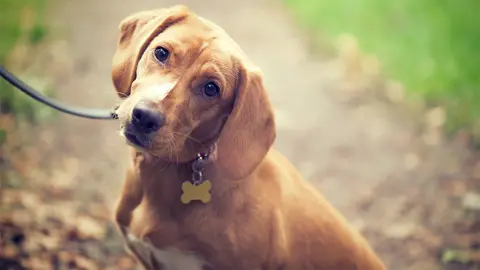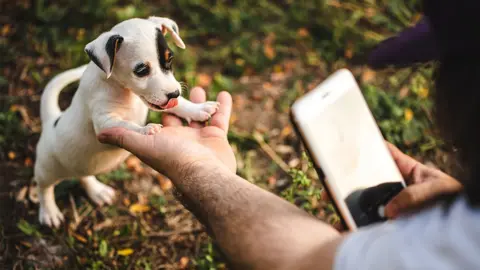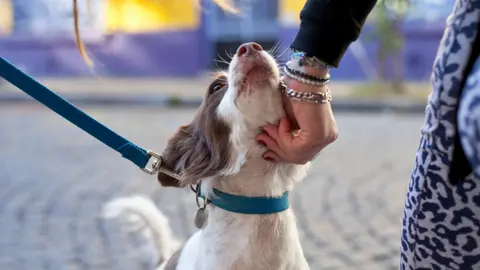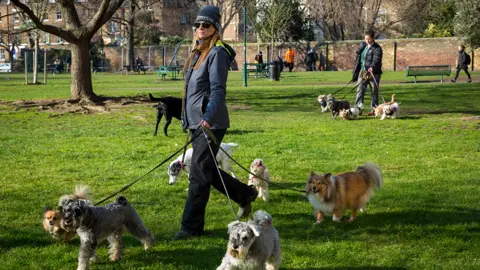Dog theft: Simple tips to stop your pet being pinched
 Getty Images
Getty ImagesRight now, under English law, if your puppy gets stolen, it's treated in same way as having your phone pinched.
That's because the theft of a dog is currently treated as a loss of an owner's property.
But after a rise in dog thefts, a new law is now coming in which makes pet abduction a criminal offence in England
Ministers hope the law will acknowledge the emotional distress which can be caused, after around 2,000 dogs were reported stolen last year.
Seven in 10 pet thefts recorded by police involved dogs, according to a report by the pet theft taskforce.
So if you're a dog owner, and you want to do what you to protect your four-legged BFF from being stolen, here are some simple tips to keep your pup as safe as possible.
Identification and microchipping
It's a legal requirement to have your dog microchipped. It means if your dog were to go missing, the microchip contains your details so that it can be traced back to you.
As well as the microchip, it's a good idea to have your up-to-date details on the dog's collar, so you can be easily contacted.
But according to charity Blue Cross for Dogs, it can be a bad idea to have the name of your dog on its collar.
This can make it easier for potential thieves to lure the dog away by calling its name.
Social media
 Getty Images
Getty ImagesWhen you get a cute new dog, the most tempting thing to do can be posting it all over your Instagram and Snapchat stories.
But when it's alongside information that shows where you live, work, or spend a lot of time, this can make you a prime target for dog thieves.
Police have previously warned against sharing too much information about new pets online, as well as tagging specific locations in your posts.
However, it is good to keep some recent pictures of your dog in your phone as having some accurate snaps could help you track it down if it were to go missing.
Be careful in public
 Huw Evans picture agency
Huw Evans picture agencyHaving a dog is a sociable thing, often on dog walks people will stop and ask you about your pet.
But according to Blue Cross for Dogs, you should look out for anyone asking too many questions.
When you need to pop in to a shop, the charity strongly advises against ever leaving your dog tied up outside - or in the car alone. Both of these places can be seen as opportunities for people looking to steal a dog.
When you're at home, the best advice is to keep your dog in sight when it's in the garden, and keep any gates locked.
Keep it in safe hands
 Getty Images
Getty ImagesPost pandemic, life is returning to something more resembling 'normal' and you might realise you have less time for walking your dog than you had during the past 18 months.
If that's the case, and you're looking to arrange a dog walker, there are some important things to note.
Dog walking is a really unregulated area of work, and a lot of the time it's people in local Facebook groups offering to help out for some pocket money.
RSPCA dog welfare expert Dr Sam Gaines says: "Dog walkers are currently unregulated and unlicensed, meaning there are no checks on who these people are and how they ensure the needs of the dogs in their care are being met."
The charity says you need to make sure your chosen dog walker has done all the right paperwork.
They should have adequate third-party insurance, and a licence if it's required in your area.


